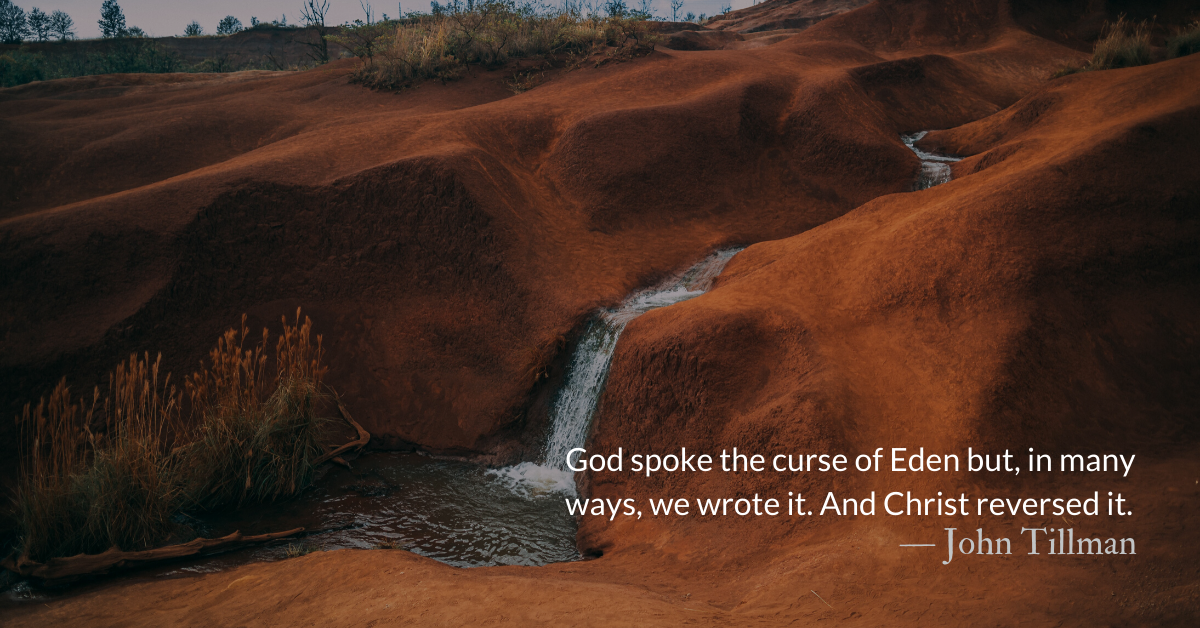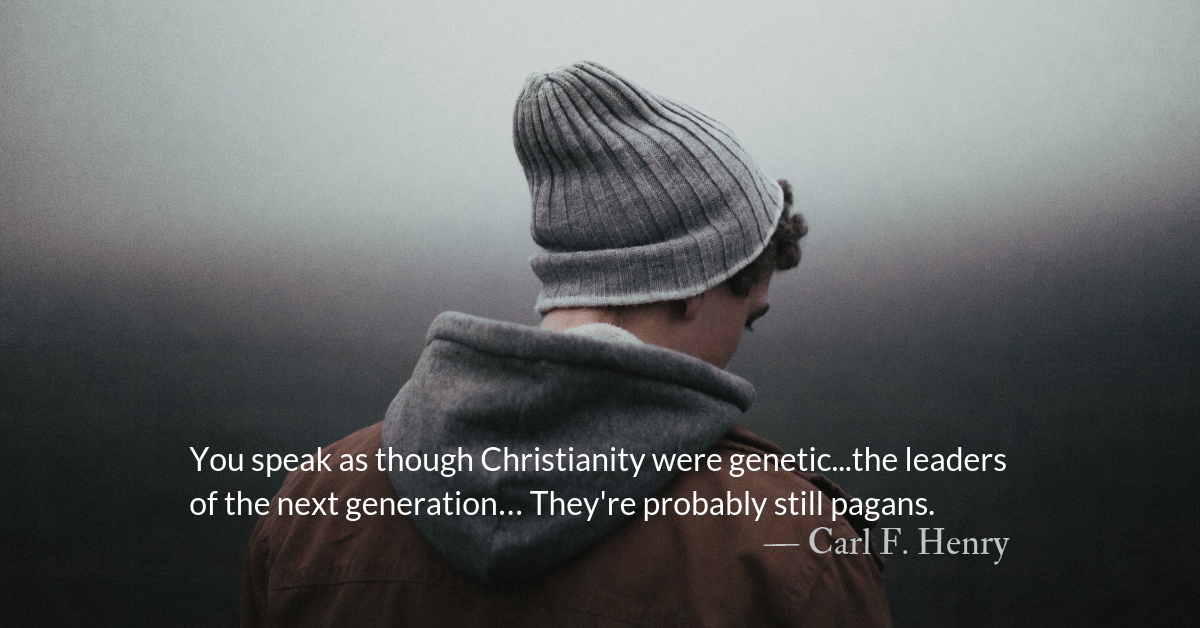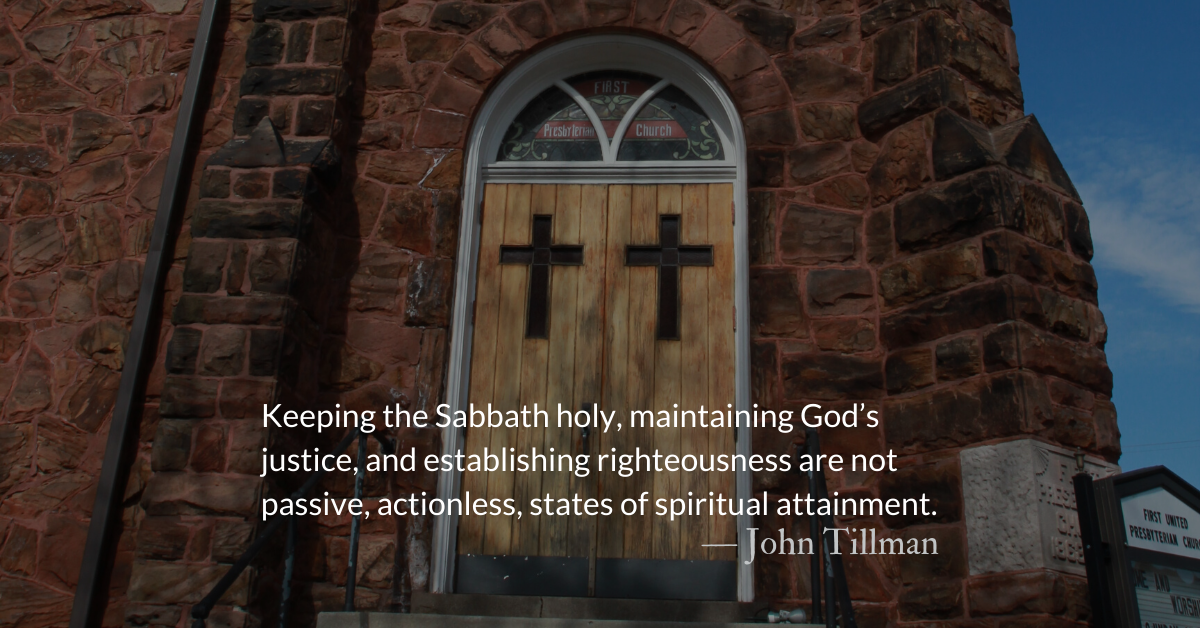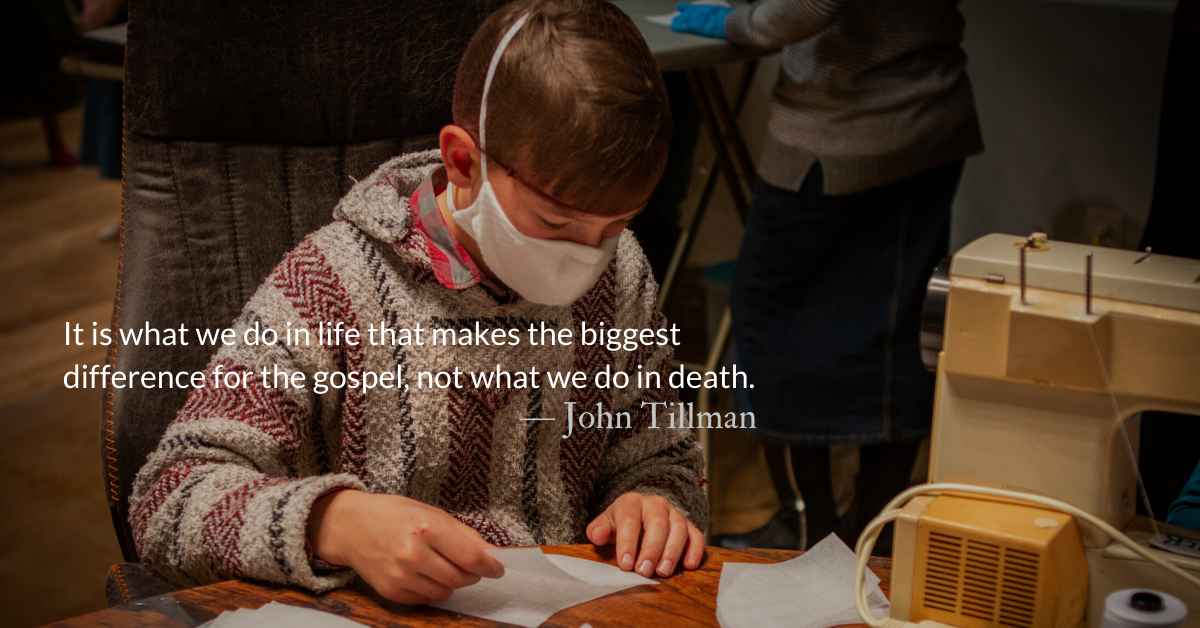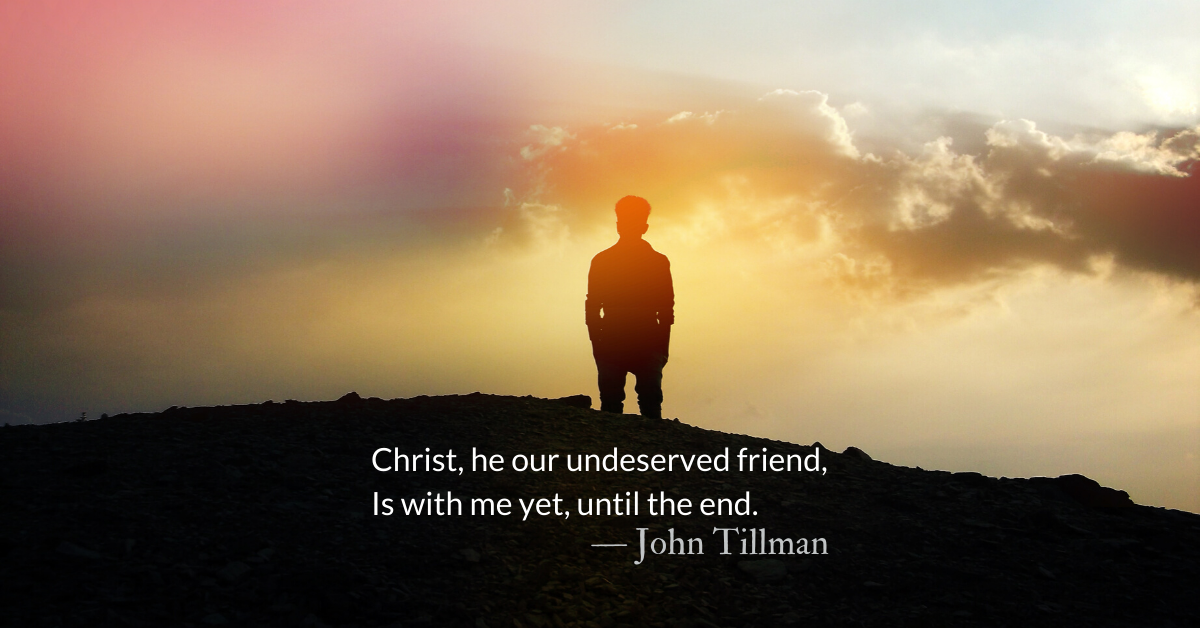Selected by reader, Jason Tilley
God is perfect justice, perfect mercy, and perfect love. He is never one over the other; rather, they exist in him in harmony. When he is jealous, it is from love, when he rights wrongs, it is from love. To fear God is not to be afraid of God. It is to stand in awe of his perfect love.
Originally published, December 31, 2019, based on readings from 2 Chronicles 36 & Revelation 22.
Scripture Focus: Revelation 22.3, 17
No longer will there be any curse….The Spirit and the bride say, “Come!” And let the one who hears say, “Come!” Let the one who is thirsty come; and let the one who wishes take the free gift of the water of life.
Reflection: The Curse Reversed—Readers’ Choice
By John Tillman
In Eden, humanity hid from God because of sin and fear and from each other because of shame and blame. This carries on into our interactions today. We both hide from God and hide God from ourselves, pushing him away to make room for gods of our choosing and making. We take the power and dominion God gave as a blessing and curse ourselves with it.
God spoke the curse of Eden but, in many ways, we wrote it. And Christ reversed it.
Even as he speaks the curse of Eden, God purposes and promises to break it. Scripture describes a God constantly working to reverse the curse and speaking repetitions of the theme of the final paragraphs of the Bible, “Come.”
In Eden, God says, “Where are you?”
At Sinai, God says, “Follow me.”
In Galilee, Christ says, “Here I am.”
In the wilderness, Christ says, “Return to me.”
In Samaria, Christ says, “Ask me for water.”
In his teaching, Christ says, “Abide with me.”
At the table, Christ says, “Remember me.”
In the garden, Christ begs, “Be with me.”
At the beginning of John’s vision, Christ says, “Come up here.”
And here, at the end of God’s vision for the world and for us, God says, “Come.”
In the curse of Eden, God commits himself to a course of intervention on our behalf. The curse is made to be broken.
Epiphany is the revealing of Christ to the nations. It is God breaking through all of our concealments, coming out of hiding, breaking the curse of banishment, and openly saying, “Come.”
The visions of Revelation can be intimidating, but we must remember the character of the God we serve, perfectly revealed to us in Jesus Christ. He is the same in the throne room as he was in the manger, as he was in the upper room washing our feet, as he was on the cross, as he was pressing the fingers of doubters into his hands, and as he is now, tenderly reaching out to all humanity.
As we enter the new year, may we remember, we do not cower before a punitively petulant God who from his pedestal pronounces our doom.
We kneel before a compassionately caring creator, who kneels lower than us, so that he may lift our face to look in his eyes.
Divine Hours Prayer: The Greeting
How great is your goodness, O Lord, which you have laid up for those who fear you; which you have done in the sight of all. — Psalm 31.19
– Divine Hours prayers from The Divine Hours: Prayers for Summertime by Phyllis Tickle
Today’s Readings
Lamentations 1 (Listen – 4:44)
Psalm 32 (Listen – 1:34)
Read more about Supporting our Work
The Park Forum strives to provide short, smart, engaging, biblical content to people across the world for free with no ads. Gifts to The Park Forum support this mission.
Read more about His Blessings, Our Curse :: A Guided Prayer
Jesus Christ became a curse for us…died to release the curse’s hold on us, then he rose to bring to us the full blessings of life that overflows with good things.

